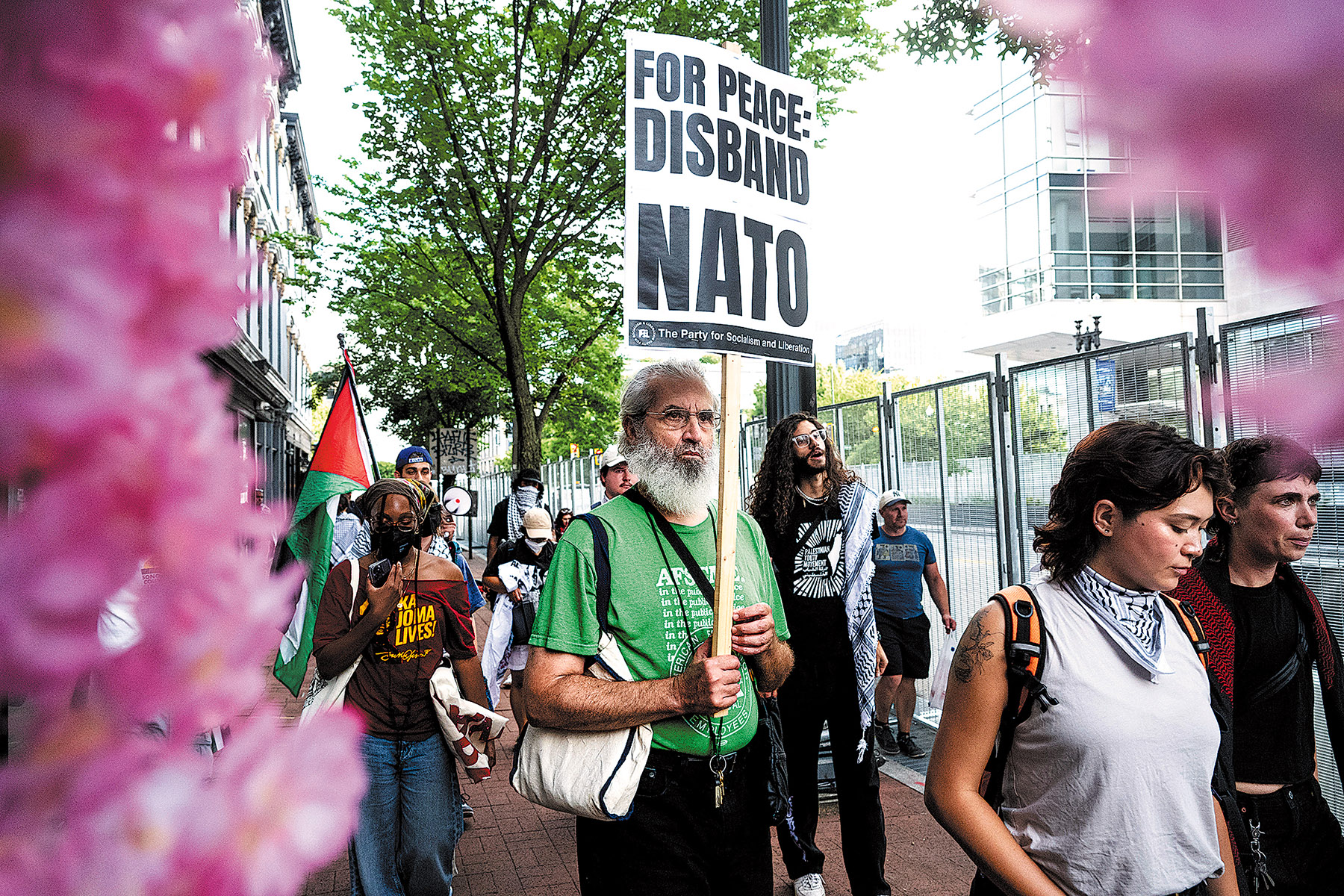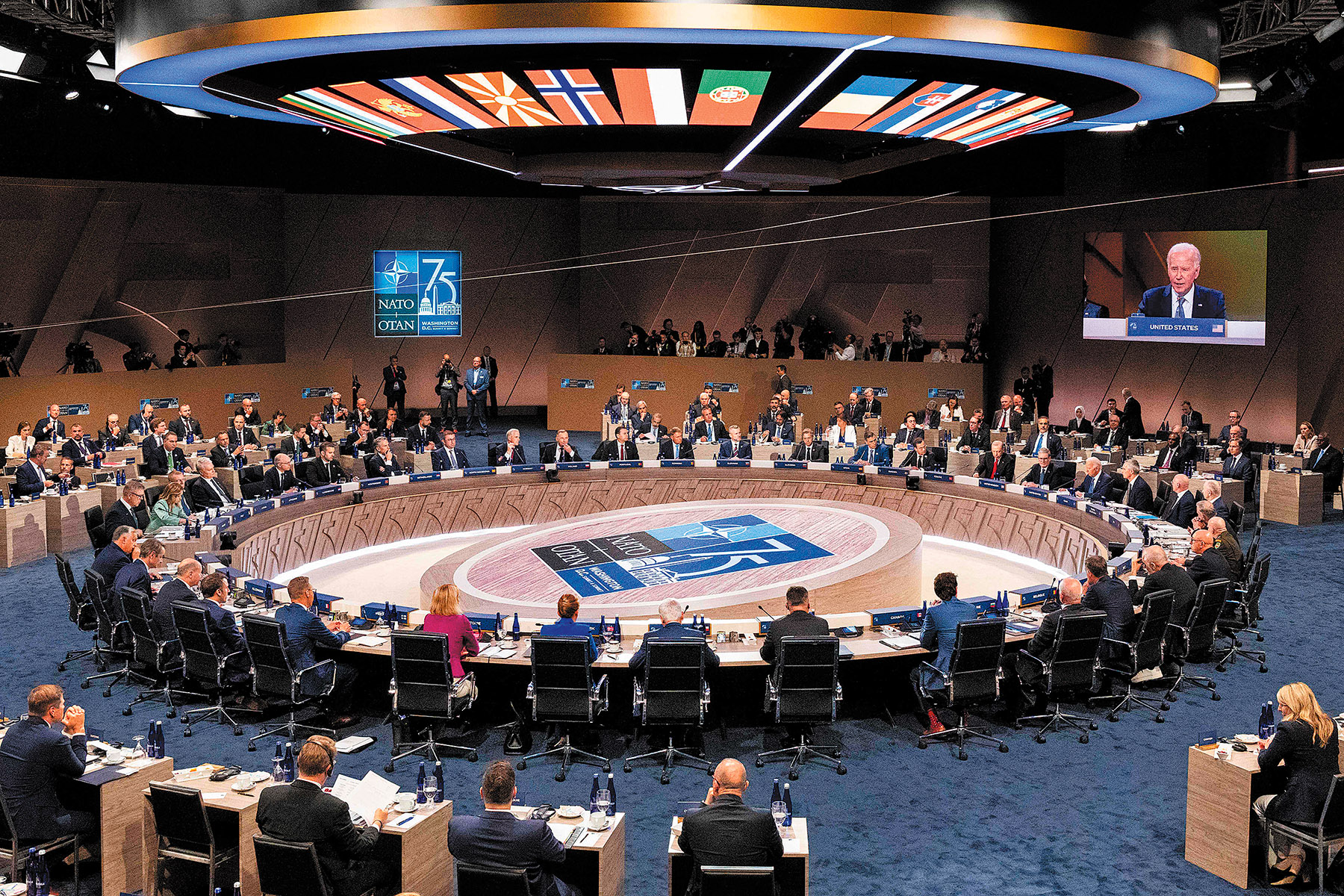‘Cold War mentality’, smears rebuked as US-led group takes aim at Beijing

China rebuked NATO accusations on July 11, describing them as “filled with Cold War mentality and belligerent rhetoric” and “provocative with obvious lies and smears”.
The NATO Washington Summit Declaration, issued on July 10 during the military alliance’s summit, claimed that China’s “ambitions and coercive policies continue to challenge our interests, security and values”. It accuses China of undercutting and reshaping the rules-based international order.
The declaration also accused China of becoming a “decisive enabler “of Russia’s conflict with Ukraine and posing systemic challenges to Euro-Atlantic security. It also criticized China on various issues, including cyber, space, nuclear, and the “Indo-Pacific”.
“The NATO Washington Summit Declaration is filled with Cold War mentality and belligerent rhetoric,” a spokesperson from the Chinese Mission to the European Union said. “The China-related paragraphs are provocative with obvious lies and smears. We firmly reject and deplore these accusations and have lodged serious representations with NATO.”
In Beijing, Foreign Ministry spokesman Lin Jian said on July 11 that China is not the creator of the Ukraine crisis, let alone a participant.
“But we have not stood at the side and watched, but have actively promoted peace talks and sought political settlement,” Lin said.
Lin slammed NATO for blaming China for the Ukraine crisis, saying the claim reflects “evil intention”.
“China’s objective and just stance and its constructive role on the Ukraine crisis have been widely recognized by the international community,” he said.
Lin also lashed out at US Secretary of State Antony Blinken for suggesting on July 10 that China supports Russia’s defense industry.
Lin cited data that more than 60 percent of components of Russia’s imported weapons and dual-use goods came from the United States and other Western countries, and 95 percent of the key components of Russian weapons destroyed by Ukraine came from the West.

The spokesperson of the Chinese Mission to the EU said China is a country that keeps its word. It has never provided lethal weapons to either party of the conflict, and exercises strict export control on dual-use goods, including civilian drones.
The normal trade flows between China and Russia do not target any third party, nor should they be subject to disruption or coercion, the spokesperson said.
“The Ukraine crisis has (been) prolonged for so long. But who is adding fuel to the fire? Who is fanning the flames? And who is seeking selfish gains? The answer is clear to everyone,” the spokesperson said.
Regarding NATO’s accusation of China’s role in the Asia-Pacific, the spokesperson said the region is a place for peaceful development, not a wrestling ground for geopolitical competition.
“NATO should not become the disrupter of peace and stability in the Asia-Pacific or a tool used by a certain power to maintain hegemony,” the spokesperson said.
Lin described NATO as a legacy of the Cold War and bloc confrontation now disguised as an “organization of securing peace”.
S.L. Kanthan, a geopolitical analyst in Bengaluru, India, criticized NATO’s accusations of China as a scapegoat tactic to deflect from the group’s failures in managing the Russia-Ukraine conflict.
“The preposterous accusations against China now are merely excuses to start extending NATO’s tentacles into Asia,” he told China Daily on July 11.
“In the loony town of Washington, war is peace, and up is down. NATO, which should have been disbanded in 1991 after the peaceful collapse of the USSR, can justify its existence only through perpetual conflicts,” Kanthan said.
Mladen Plese, a Croatian political analyst, told Xinhua News Agency on July 10 that NATO must not become a tool of the US to implement Washington’s policies around the world.
NATO is also being used by the US in the Asia-Pacific region, and this “does not correspond to the interests of Europe at all”, he said.


